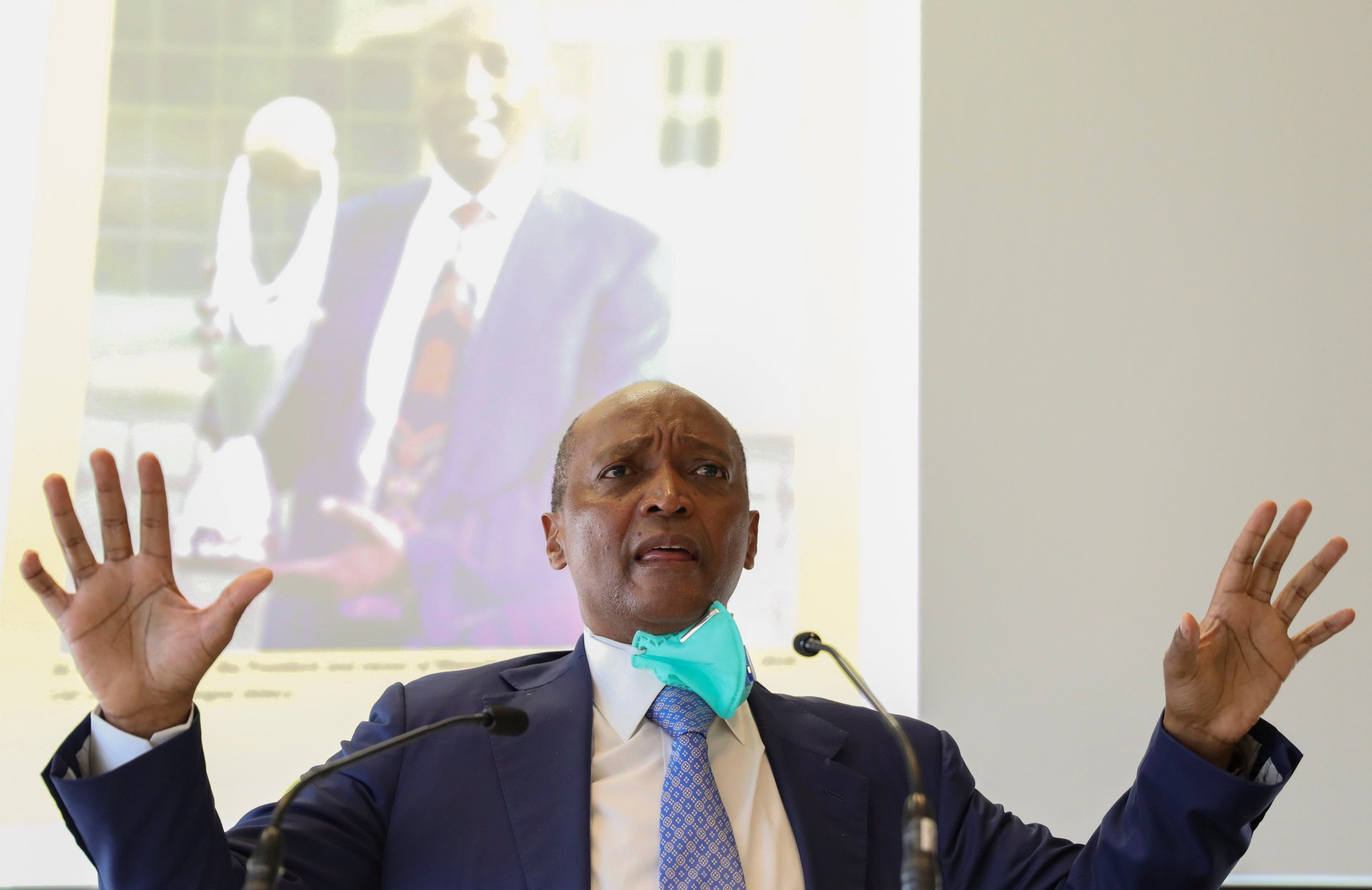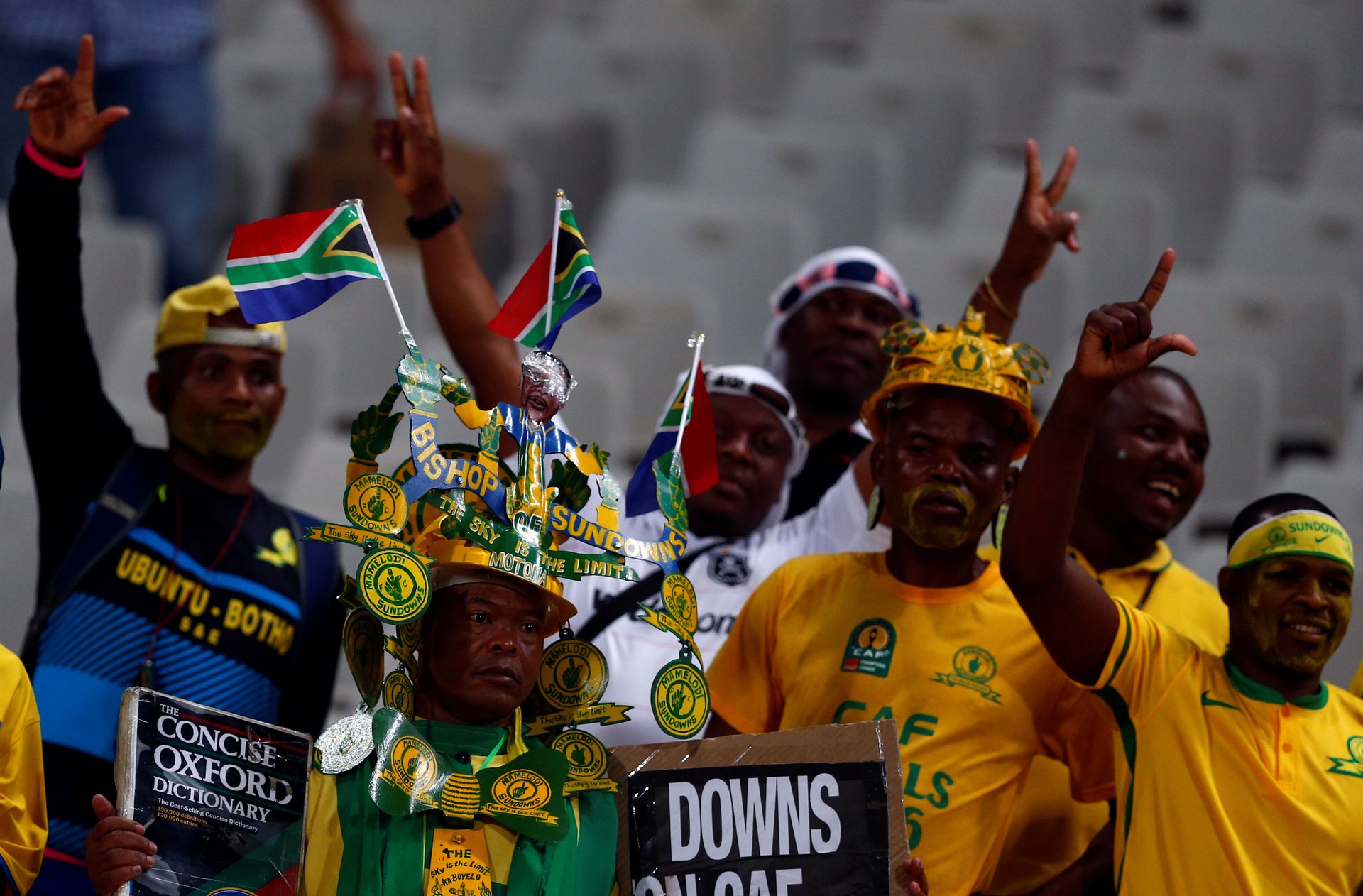Africa’s new soccer boss has inherited an unholy mess
For the first time in its 64-year history, the Confederation of African Football (CAF), the continent’s administrative body for the sport, has an Anglophone president. Patrice Motsepe, a 59-year-old South African businessman and former lawyer, was elected unopposed to be come CAF’s eighth president on March 12 in Rabat, Morocco in a Fifa-brokered deal (CAF is one of the six confederations which make up FIFA, football’s world governing body).


For the first time in its 64-year history, the Confederation of African Football (CAF), the continent’s administrative body for the sport, has an Anglophone president. Patrice Motsepe, a 59-year-old South African businessman and former lawyer, was elected unopposed to be come CAF’s eighth president on March 12 in Rabat, Morocco in a Fifa-brokered deal (CAF is one of the six confederations which make up FIFA, football’s world governing body).
Motsepe is highly respected for his decades of work transforming South Africa’s mining sector into a more equitable space, becoming Africa’s first Black billionaire in the process. Now, he faces the herculean task of transforming African football into a more level playing field, and addressing some of the challenges plaguing Caf since its previous president, Ahmad Ahmad, took charge in four years ago.
Motsepe’s March 12 election lacked the drama of his predecessor’s four years ago. In 2017, Ahmad had uprooted CAF’s longest-serving president, Issa Hayatou, who had ruled the confederation with an iron fist for 29 years. This time, other contenders for the top job—Jacques Anouma of Ivory Coast, Senegal’s Augustin Senghor, and Ahmed Yahya of Mauritania—withdrew their candidacies to pave the way for Motsepe’s win, with encouragement from FIFA president Gianni Infantino.
Motsepe has been entrusted with lifting the sports body from its current shambolic state of affairs. He will have to do it with five vice presidents, and FIFA’s oversight.
“The expectations are quite high, given the qualities that Motsepe will bring to the position,” says seasoned football analyst Chuka Onwumechili. His business success “is quite important, because at least he does not depend on his position at CAF to become wealthy.”
The mess Motsepe is inheriting
Ahmad became the leader of African football in the wake of a global corruption crisis that had engulfed the sport since 2015. Promising financial transparency and accountability, he was supposed to herald a new dawn for CAF. That dawn quickly turned to dusk.
The challenges facing the organization were exemplified during the final of the 2018- 2019 CAF Champion’s League, Africa’s elite football club competition, held at Tunisia’s Stade Olympique de Radès in June 2019. Sixty thousand football fans watched in dismay as the game between Tunisia’s Espérance de Tunis and Morocco’s Wydad Casablanca was abandoned due to a row between the finalists.
With just one hour left in play, the match was halted when Wydad protested that a video assistant referee was unavailable to judge a rejected goal. Ahmad was seen on the field discussing the contention with match officials for over 30 minutes. CAF ultimately decided to hand over the trophy to ES Tunis, but later asked ES Tunis to hand back the trophy and medals, and demanded the two teams replay the final. In response, ES Tunis filed a complaint to the Court of Arbitration for Sport (the highest judicial body for global sport disputes), which annulled the CAF decision. So, ES Tunis were handed the trophy for the second time.

This wasn’t the first time in the elite competition’s 55 years that a final had been interrupted. And it certainly wasn’t the first time Ahmad’s shortcomings as leader of the soccer federation would be exposed.
Later that month, Ahmad was questioned by French authorities as part of a corruption investigation (he was released without charge). Allegations of sexual harassment going back as far as 2017 were levied on him by CAF workers and contractors. A leadership tussle among his vice presidents exacerbated these woes. Then, in 2019, Fifa effectively took over control of CAF. A PriceWaterhouseCoopers’ report would go on to report that CAF’s financial record was “unreliable and not trustworthy.” Ahmad was banned from the sport by Fifa in November for five years for abuse of office and misappropriation of funds; the ban has since been reduced to two years by the Court of Arbitration for Sport.
CAF’s lowest moment came in the termination of a $1 billion television and marketing rights deal with France-based company Lagardère Sport in November 2019. The African body had already seen its budget nosedive from $136 million when Hayatou left in March 2017 to $103 million in May 2019, partly because of significant payments made to its executive members. The end of the agreement wasn’t just a revenue hit—it also resulted in a blackout of CAF games via SuperSport—Africa’s largest sports broadcaster—which had a deal to broadcast CAF games through Lagardere.
“The continent has been in total blackout for the last two years,” says Oluwashina Okeleji, a sports journalist who has covered Africa for the BBC for 17 years. “CAF needs to bring in more money: TV deals that will guarantee enough to go into the coffers of the confederation—as well putting Afcon qualifiers, World Cup qualifiers and club competitions on TV.”
Can Motsepe clean up CAF?
Motsepe has not only had success in business. He is well-known for turning South African club Mamelodi Sundowns from a yoyo team when he purchased it in 2004, to veritable competitors. The club, which he sometimes refers to as his “charity arm,” won the CAF Champions League in 2016, and has nabbed seven league titles since. It is now the most powerful club in South Africa, and arguably in sub-Saharan Africa.

But the issues facing CAF are on a whole other level, Oluwashina says. Motsepe “may have run Mamelodi Sundowns, but running African football is a completely different ball game, because we are talking about 54 countries here.”
Oluwashina thinks CAF’s new secretary general Veron Mesongo Omba, formerly the chief officer for FIFA member associations, will play a significant role. Originally from the DR Congo and now a Swiss citizen, Omba is expected to be on hand to further Fifa’s policies.
Motsepe has supported Omba’s appointment. “In Veron, we have world-class material,” Motsepe has said. “He said to me: ‘I want to make a contribution.’ I need results, I need someone who can hit the ground running.”
If there’s anything CAF is wary of now, it is its current budget, which has dipped considerably since Ahmad took over, Oluwashina says. He estimates from his reporting that the federation only has around $60 million left in its coffers. “Motsepe might attract investors into African football because he is a new man who doesn’t have the stain of the past, maybe people will trust him,” he says.
Oluwashina’s optimism is seconded by South African sports journalist Lorenz Köhler. “Motsepe is running the 12th biggest mining company in the world, and has a decorated CV in terms of leadership,” Köhler says. That makes the mining magnate a “standout when it comes to the other football administrators in Africa.”
Sign up to the Quartz Africa Weekly Brief here for news and analysis on African business, tech, and innovation in your inbox.